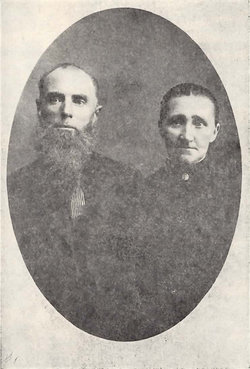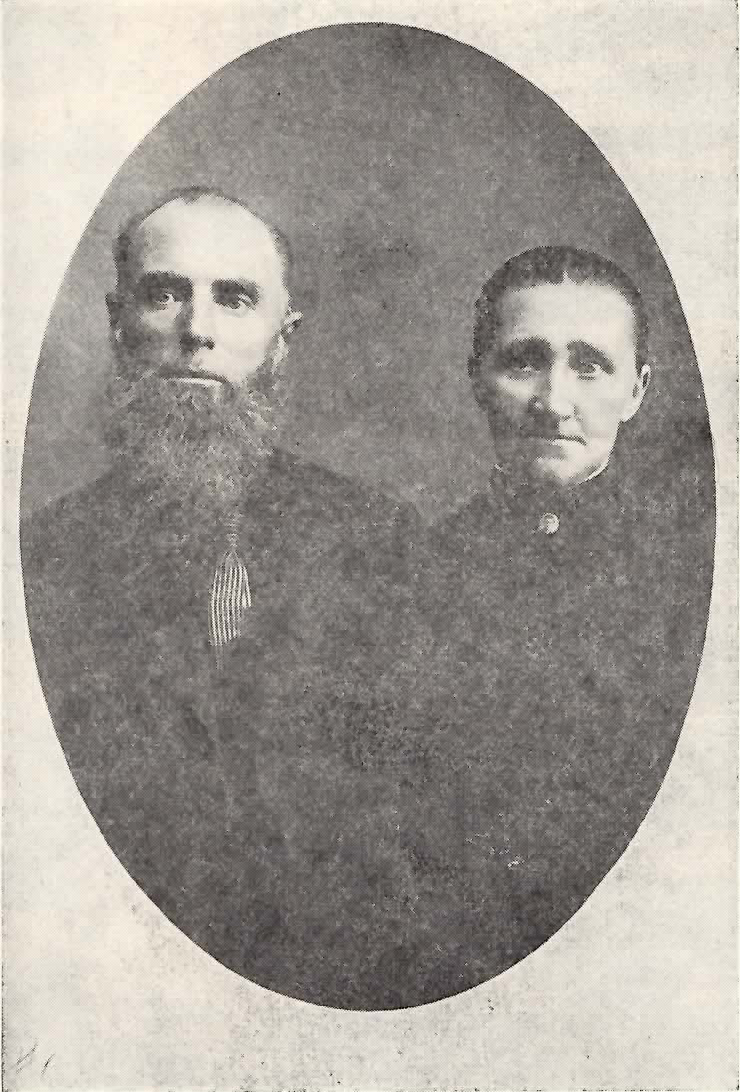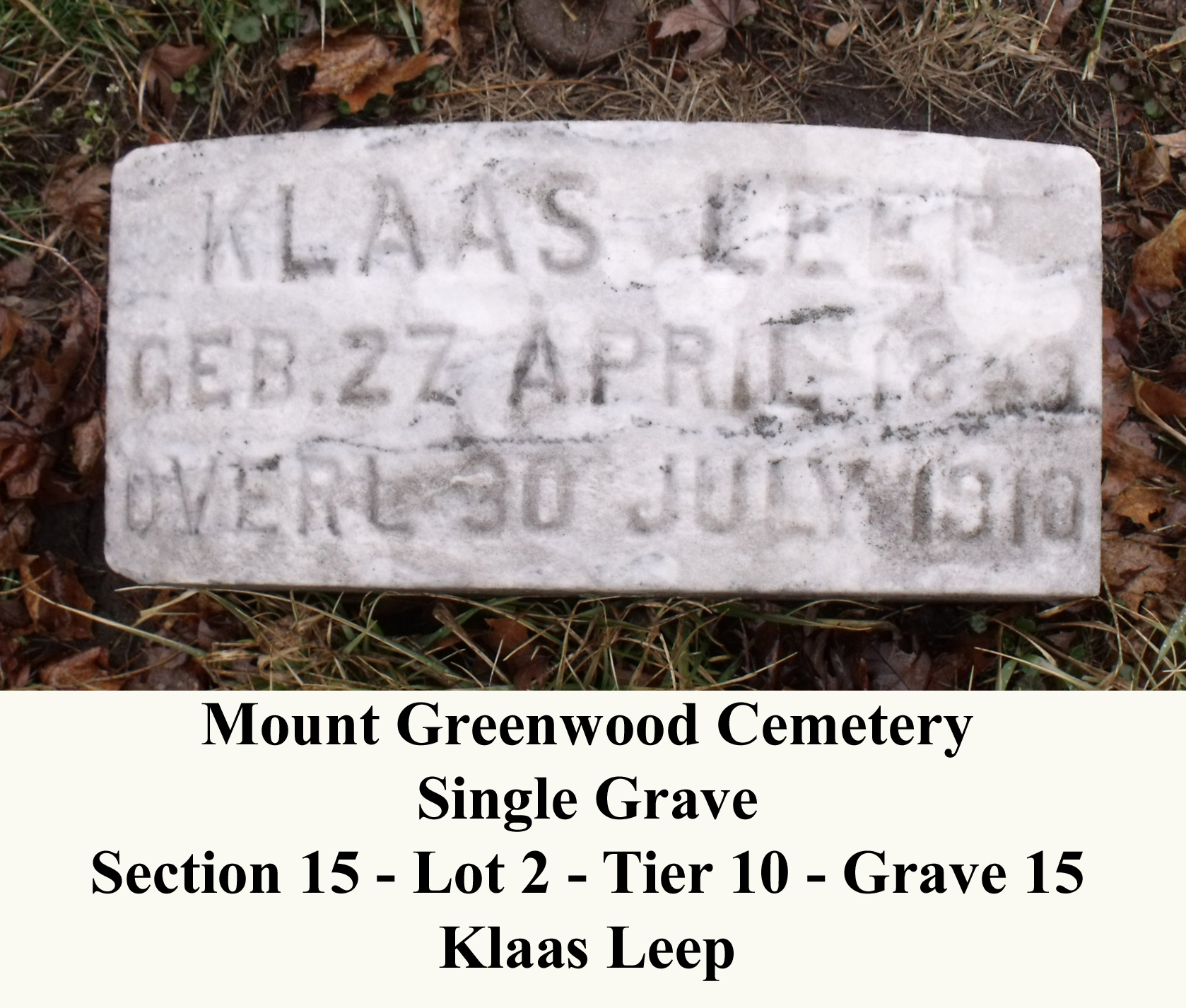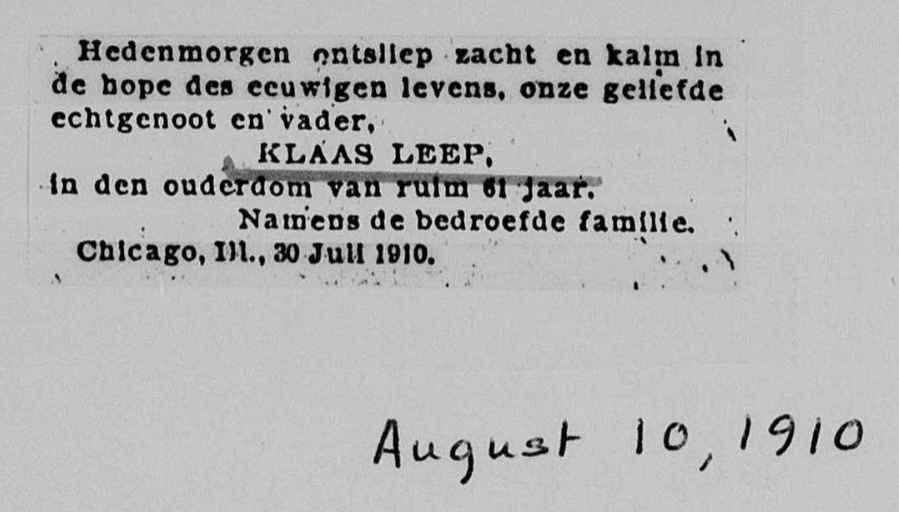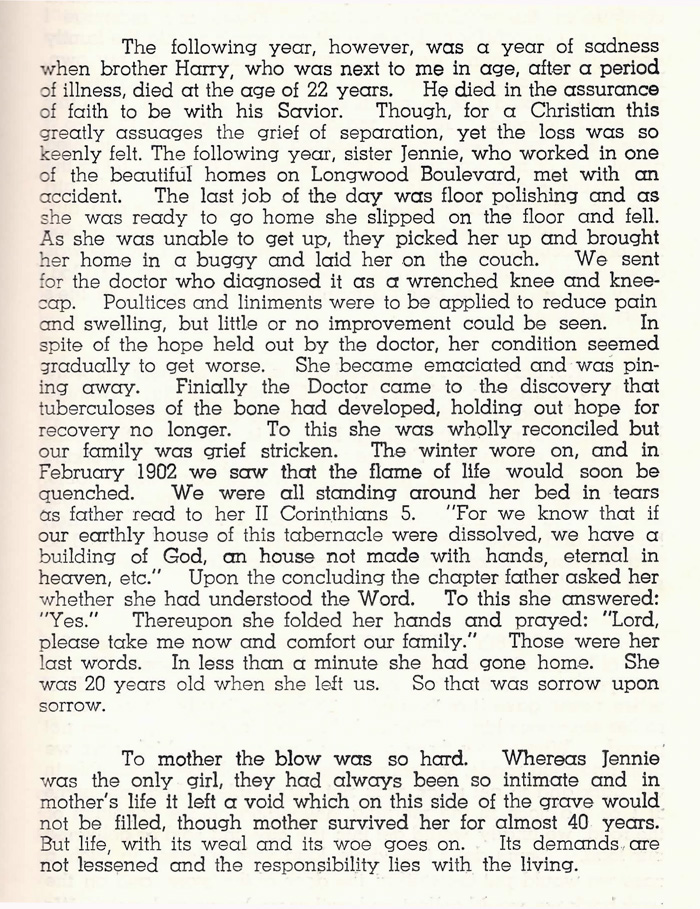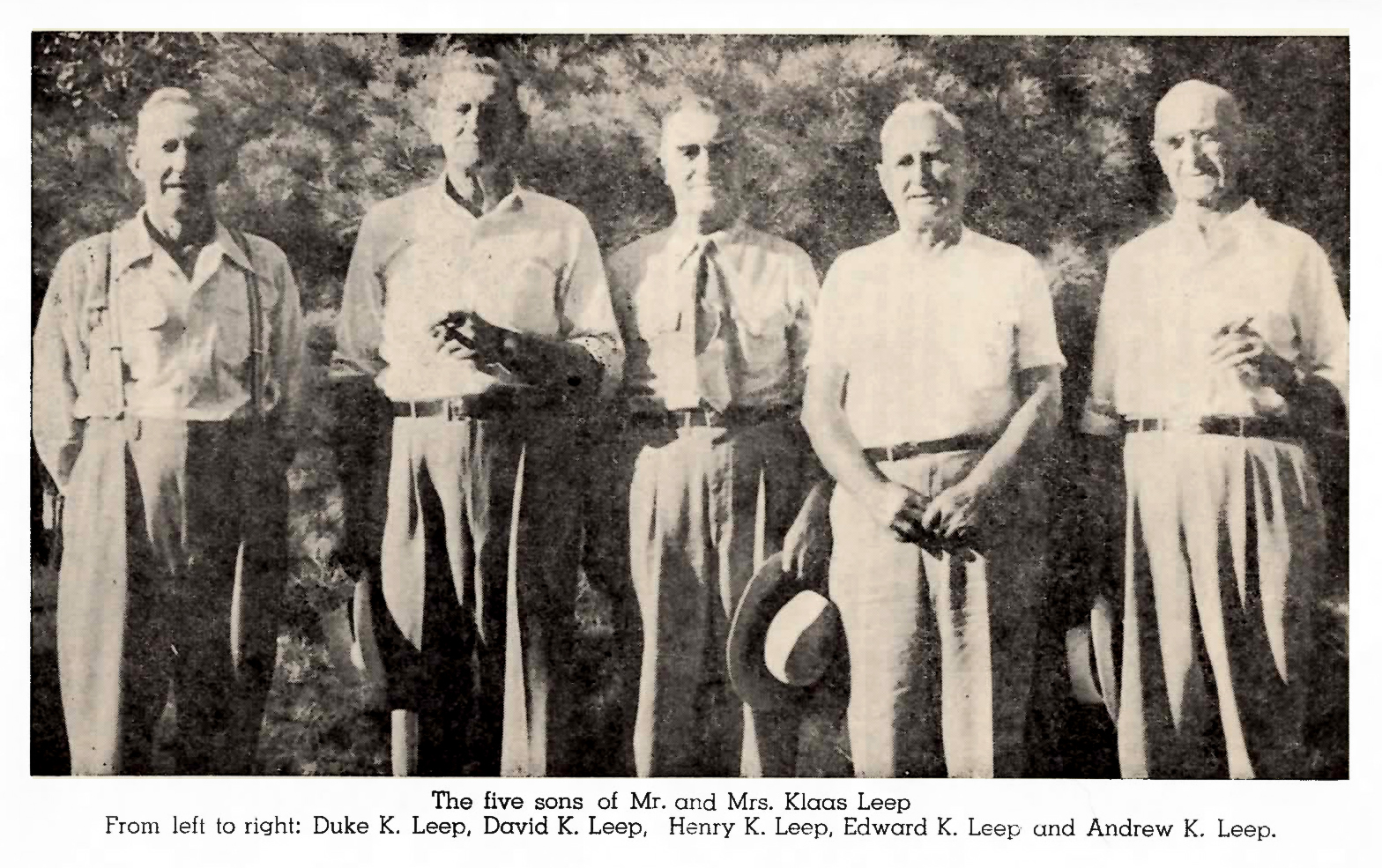A possible explanation for the surname Leep might be that in the local Bildt's language "leep" means peewit, lapwing, the name of a nice black and white pasture bird. In Frisian language it's called a ljip and in Dutch kievit. These birds arrive in spring from Africa in the Netherlands. They have their nests in small dimples in pasture's ground.
On April 14, 1869 Klaas Leep, still residing in Sint Annaparochie and without an occupation, was exempted from serving five years in the Dutch National Army because of defect no. 68, this is "Belangrijke kromming der ledematen" (Major curving of the limbs). His son Edward K. said in 1955 on a family reunion: "Father was a cripple and consequently unable to perform much [in Chicago, 1896-1910], if any, manual labor, and having no knowledge of the English language, and unable to find employment in the field of book-keeping, the responsibility for the support of the family came to rest on my brother Andrew and myself."
On January 15, 1874 Klaas Leep, still without an occupation, married in his birth and residence place Sint Annaparochie at the age of 24 years the servant maid Klaaske Prins, who had the same age and was born in Marrum in the Frisian northern municipality Ferwerderadeel.
From July 1874 until September 1892 Klaas and Klaaske had in Sint Annaparochie seven sons and one daughter: Anne (1874), Egbertus (1876), Haring (1879), Janke (the only daughter, 1882), Hendrik (1884), Douwe (1886), Doeke (1889) and Jacob Jan (1892). The latter died at the age of 9 months on 2 July 1893 in Sint Annaparochie.
Klaas was in 1874, 1876 and 1879 a shopkeeper, in 1882 a merchant, in 1884 he had no occupation, in 1886 and 1889 a merchant again, and in 1892 a laborer.
On May 19, 1893 their oldest sons Anne (18) and Bertus [Egbertus] (16) Leep, both laborer, left home, house nr. 170 in Sint Annaparochie, and arrived on May 31, 1893 on the S.S. Maasdam at the port of New york, Ellis Island. Their destination was Chicago. Carpenter Klaas Leep (47), his wife Klaaske (46) and their children Haring (16), Janke (13), Hendrik (11), Douwe (9) and Doeke (7) left home on 2 August 1896 and arrived on August 15, 1896 at New York, on the S.S. Maasdam too. Their destination was Kensington; very probably was meant the train station Kensington in the southern part of Chicago.
In June 1900 Klass Leep (51 years old, gardener), his wife Clara (51, mother of 1 deceased and 7 living children), their children Oscar [Edward] (24), Harry (21), Jennie (18), Henry (15), David (14) and Duco [Duke] (11) were living at a rented farm at 10611 Central Avenue, Calumet Township, Ward 31 of [South] Chicago, Cook County, Illinois. They were all born in Holland and immigrated in 1897 [has to be: 1896], except for son Oscar aka Edward, who immgrated in 1893.
In November 1900 and February 1902 they lost in Chicago their son Harry and their only daughter Jennie. See for detailed info on these tragedies one of the photo attachments.
In April 1910 Nicholas Leep (60, truck farm gardener), his wife Clara (60), their sons David [Douwe] (23, truck farm laborer) and Duke [Doeke] (21, truck farm laborer) were living on their own farm at 10124 Halstead Street in Ward 32 of [South] Chicago.
While his sons Andrew and Edward were in May 1910 looking around in Canada for a suitable tract of land of sufficient size to accommodate a settlement of community size, they had filed for their father Klaas on a homestead. He had expressed his willingness to go to Canada if his sons would go there. He had been failing in health for some time but not alarmingly so. Since a crippling accident he had never been very robust. When the brothers came back they reported their findings and told him that they had filed a homestead for him too, he was not very enthusiastic and said, "I think my homestead will be in Morgan Park." At that place was the cemetery. His forebodings proved to be true, and on July 31, 1910 he died. They had no idea then that subsequent history would prove that he was spared much hardship and disappointment. Klaas never was quite orientated in America, not being able to continue in his own field of activity, being far removed from lifelong friends and associates, he seemed unable to find a suitable niche from which he could operate comfortably. Not that he was unhappy here, far from it, he was grateful till the day of his death that he and his family moved here. He loved America, however, he was living outside of his element. An old tree transplanted does not take root readily. In 1904 he took a trip to Holland, when he came back, any nostalgia which he may have had, was gone. Every comparison was so greatly in favor of America. Moreover, the ties of intimate associations had mutually slackened and he was somewhat disappointed. That trip to Holland proved a good investment. Father was a self-educated man, he was a voracious reader and had not only acquired much knowledge, but wisdom as well.
Klaas Leep was for 14 years resident of Chicago.
Gardener Nicholas Leep died in July 1910 at the age of 61 years from a carcinoom of the stomach at 10124 Halsted Street, Ward 33, in the southern part of Chicago, where he resided during the last ten years of his life. His son David Leep lived also at that address.
The family Leep "died out" in the Netherlands, but "survived"in the USA.
A possible explanation for the surname Leep might be that in the local Bildt's language "leep" means peewit, lapwing, the name of a nice black and white pasture bird. In Frisian language it's called a ljip and in Dutch kievit. These birds arrive in spring from Africa in the Netherlands. They have their nests in small dimples in pasture's ground.
On April 14, 1869 Klaas Leep, still residing in Sint Annaparochie and without an occupation, was exempted from serving five years in the Dutch National Army because of defect no. 68, this is "Belangrijke kromming der ledematen" (Major curving of the limbs). His son Edward K. said in 1955 on a family reunion: "Father was a cripple and consequently unable to perform much [in Chicago, 1896-1910], if any, manual labor, and having no knowledge of the English language, and unable to find employment in the field of book-keeping, the responsibility for the support of the family came to rest on my brother Andrew and myself."
On January 15, 1874 Klaas Leep, still without an occupation, married in his birth and residence place Sint Annaparochie at the age of 24 years the servant maid Klaaske Prins, who had the same age and was born in Marrum in the Frisian northern municipality Ferwerderadeel.
From July 1874 until September 1892 Klaas and Klaaske had in Sint Annaparochie seven sons and one daughter: Anne (1874), Egbertus (1876), Haring (1879), Janke (the only daughter, 1882), Hendrik (1884), Douwe (1886), Doeke (1889) and Jacob Jan (1892). The latter died at the age of 9 months on 2 July 1893 in Sint Annaparochie.
Klaas was in 1874, 1876 and 1879 a shopkeeper, in 1882 a merchant, in 1884 he had no occupation, in 1886 and 1889 a merchant again, and in 1892 a laborer.
On May 19, 1893 their oldest sons Anne (18) and Bertus [Egbertus] (16) Leep, both laborer, left home, house nr. 170 in Sint Annaparochie, and arrived on May 31, 1893 on the S.S. Maasdam at the port of New york, Ellis Island. Their destination was Chicago. Carpenter Klaas Leep (47), his wife Klaaske (46) and their children Haring (16), Janke (13), Hendrik (11), Douwe (9) and Doeke (7) left home on 2 August 1896 and arrived on August 15, 1896 at New York, on the S.S. Maasdam too. Their destination was Kensington; very probably was meant the train station Kensington in the southern part of Chicago.
In June 1900 Klass Leep (51 years old, gardener), his wife Clara (51, mother of 1 deceased and 7 living children), their children Oscar [Edward] (24), Harry (21), Jennie (18), Henry (15), David (14) and Duco [Duke] (11) were living at a rented farm at 10611 Central Avenue, Calumet Township, Ward 31 of [South] Chicago, Cook County, Illinois. They were all born in Holland and immigrated in 1897 [has to be: 1896], except for son Oscar aka Edward, who immgrated in 1893.
In November 1900 and February 1902 they lost in Chicago their son Harry and their only daughter Jennie. See for detailed info on these tragedies one of the photo attachments.
In April 1910 Nicholas Leep (60, truck farm gardener), his wife Clara (60), their sons David [Douwe] (23, truck farm laborer) and Duke [Doeke] (21, truck farm laborer) were living on their own farm at 10124 Halstead Street in Ward 32 of [South] Chicago.
While his sons Andrew and Edward were in May 1910 looking around in Canada for a suitable tract of land of sufficient size to accommodate a settlement of community size, they had filed for their father Klaas on a homestead. He had expressed his willingness to go to Canada if his sons would go there. He had been failing in health for some time but not alarmingly so. Since a crippling accident he had never been very robust. When the brothers came back they reported their findings and told him that they had filed a homestead for him too, he was not very enthusiastic and said, "I think my homestead will be in Morgan Park." At that place was the cemetery. His forebodings proved to be true, and on July 31, 1910 he died. They had no idea then that subsequent history would prove that he was spared much hardship and disappointment. Klaas never was quite orientated in America, not being able to continue in his own field of activity, being far removed from lifelong friends and associates, he seemed unable to find a suitable niche from which he could operate comfortably. Not that he was unhappy here, far from it, he was grateful till the day of his death that he and his family moved here. He loved America, however, he was living outside of his element. An old tree transplanted does not take root readily. In 1904 he took a trip to Holland, when he came back, any nostalgia which he may have had, was gone. Every comparison was so greatly in favor of America. Moreover, the ties of intimate associations had mutually slackened and he was somewhat disappointed. That trip to Holland proved a good investment. Father was a self-educated man, he was a voracious reader and had not only acquired much knowledge, but wisdom as well.
Klaas Leep was for 14 years resident of Chicago.
Gardener Nicholas Leep died in July 1910 at the age of 61 years from a carcinoom of the stomach at 10124 Halsted Street, Ward 33, in the southern part of Chicago, where he resided during the last ten years of his life. His son David Leep lived also at that address.
The family Leep "died out" in the Netherlands, but "survived"in the USA.
Family Members
Sponsored by Ancestry
Advertisement
Advertisement
